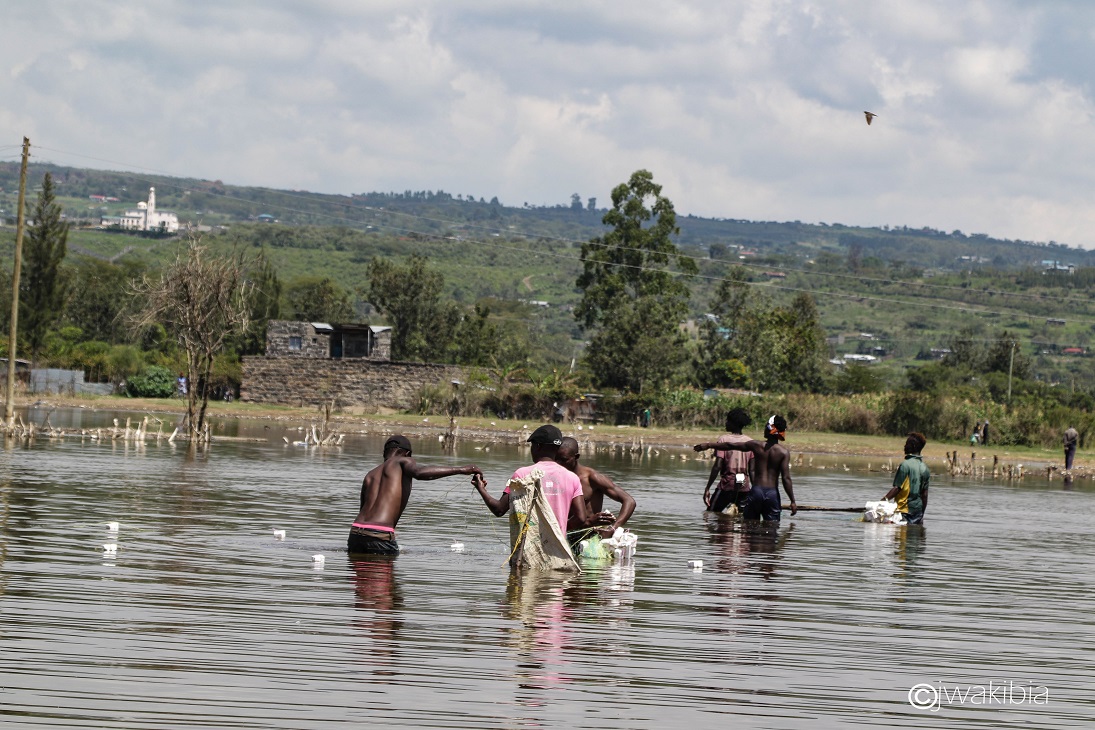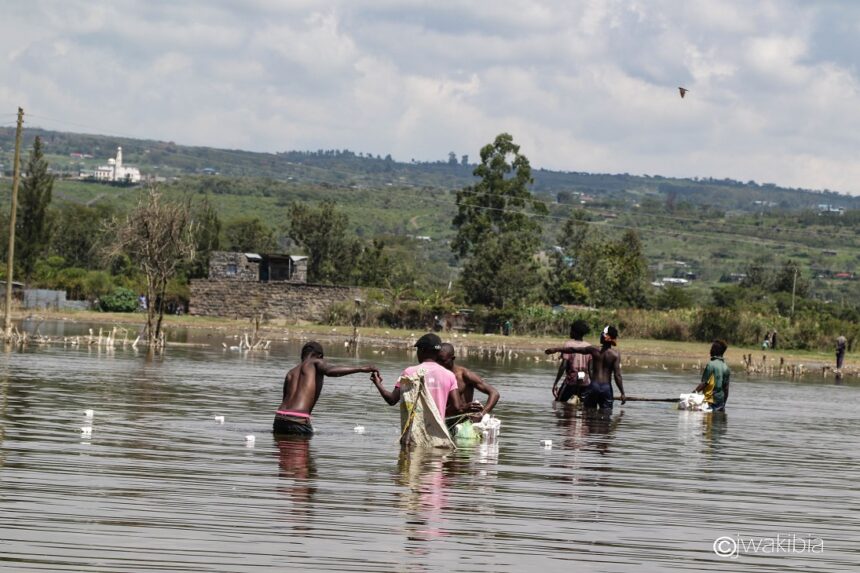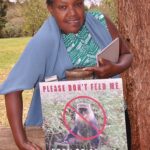
By Ann Mikia I annmikia@gmail.com
The swelling of Lake Nakuru and eventual displacement of people living not too far from its shores was nothing like anyone had seen in decades. But here we were in 2020, reporting cases of lakes merging, homes, hotels and businesses being submerged, and more scary scenes that threatened the ecosystem.
In Mwariki, not too far from Lake Nakuru, Damaris Wairimu, 60, and Anne Wanjiru, 70, had to flee with their entire families to higher ground, as they watched the water body swell and slowly but surely invade their houses, rendering then victims of climate induced displacement.
“I had lived there since the 1970s and never seen anything like that. Our parents worked for the colonialists. Before the white people left, they subdivided the land to their employees. That’s how we got ours,” said Wairimu, adding: “I used to farm and grow vegetables, but since we were displaced, challenges have not ceased. Now I have high blood pressure.”
Wanjiru and several residents of Mwariki were at first reluctant to move. It took the waters to get right inside their homes for them to get the message that something so serious was happening. “We first wondered where we would go, what to carry and what not to. It was until the water levels rose and our beds were submerged that we fled. We lost a lot,” she narrated.
Part of the loss was the two acres on which Wanjiru grew vegetables and spices. It, too, was swallowed. As they escaped, they did not salvage much. It was a true case of everyone for themselves and God for all. “We escaped with the clothes we had on. At my age, what could I do? Everyone was carrying only what they could. Well-wishers on higher ground accommodated us as we figured out what to do,” said Wairimu.
The phenomenon was not peculiar to Rift Valley lakes. Down at the Lake Victoria Basin, there were horror stories. The lake literally invaded people’s homes, and displaced them. Hippos and snakes roamed freely, even to where the displaced found refuge. Livelihoods were lost. No one could fight back.
Henry Mangome, who spent at least Sh7 million USD 56,800 to construct a house in his ancestral home, saw the swelling Lake Victoria turn everything upside down. “My house’s walls cracked. A structural engineer examined it and recommended that it be brought down. He said the swelling of the lake had negatively affected the walls, and also suspected that a movement underground may have interfered with the house’s foundation, hence distabilising the whole structure,” said Mr Mangome.
The lake water has since receded, but many are still counting losses occasioned by its swelling.
“I had spent about Sh7 million USD 56,800 on the house. I’m still servicing the loan, yet I will have to start from scratch. See what climate change did to me? Now you can imagine how much more poor families living around the lake suffered,” said Mr Mangome.
Overall, populations in Kisumu, Siaya, Migori, Busia, Homa-Bay, Baringo, Tana River, Taita Taveta, Nairobi and Nakuru suffered unprecedented flooding in 2000, for some, worse than had been witnessed in almost a century. Some victims may never recover the loss and damage that ensued.
Dr Emmanuel Okunga, an epidemiologist at the Ministry of Health, says of the effects of climate disasters: “When people lose livelihoods, they may not feed well, and cases of malnutrition arise. Gender based violence is prevalent, not forgetting the water borne diseases.”
Mr Januaris Kasanga of Kenya Red Cross Disaster Management Department decried the health risks resulting from contamination of water by submerged toilets during flooding.
“Our response entails giving water purifiers and treatment chemicals for the Water, Sanitation and Health (WASH) programme. In flooding situations, you cannot dig pit latrines; so we also give makeshift toilets. We now focus on localised solutions to local problems. We train community-based disaster responders on early warning and response,” said Mr Kasanga.
Lenencia Nyang’ori, a Red Cross disaster committee members in Busia, says it was not easy to convince possible flood victims to leave to higher ground. “After we get early warning from the Meteorological Department about imminent flooding in Budalangi, we advise residents to move to higher ground. Some refuse to leave. And because they are given chance to choose where they prefer to be housed, some spouses go to separate places. This in itself poses a new challenge,” says Ms Nyang’ori.
Budalang’i, which had been synonymous with flooding during long rains, was not spared by the backflow of Lake Victoria. Busia Disaster Management Committee chairperson Peter Malomba says: “During the backflow many residents lost property and their houses destroyed.”
Normalcy has returned in many affected parts in Rift Valley, but, according to Red Cross, about 15 households are still supported in tents.
In November, the 27th Conference of Parties to the United Nations Convention on Climate Change (COP27) in Sharm el Sheikh, Egypt, closed with a landmark breakthrough; an agreement to provide Loss and Damage funding for countries hit hard by climate disasters that stretch adaptation limits.
But Mr Mangome , who was at the COP27, says even with the breakthrough, it is still tough. “No compensation will be commensurate to the real losses incurred,” he says.
For Busia Deputy Commissioner Grace Ouma, even Government cannot do much. “The government cannot compensate flood victims, but only assists them with the help of other partners by providing just the basic needs.”









